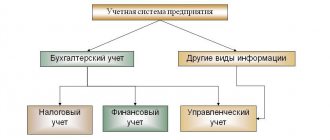Russian organizations, as well as foreign companies that are tax residents of the Russian Federation or operate through permanent representative offices, must pay income tax on income from the sale of goods (work, services) and non-operating income.
Russian organizations, as well as foreign companies that are tax residents of the Russian Federation or operate through permanent representative offices, must pay income tax on income from the sale of goods (work, services) and non-operating income (clause 1, 5 of Article 246, clause 1 Article 248 of the Tax Code of the Russian Federation).
Sales income - proceeds from the sale of own products, purchased goods, goods, works, services, fixed assets, property rights (clause 1 of Article 249 of the Tax Code of the Russian Federation).
Non-operating income is a company's income that cannot be classified as income from sales. For example, these include:
- income from the purchase and sale of foreign currency;
- fines and penalties for violation of the contract by the counterparty;
- property received free of charge;
- interest on loans issued;
- positive exchange rate differences;
- dividends from participation in other companies.
The list of non-operating income is given in Article 250 of the Tax Code of the Russian Federation.
In order to correctly determine taxable income, it is necessary to exclude indirect taxes from it: VAT and excise taxes that the company presented to buyers and customers (subclause 2, clause 1, article 248, clause 19, article 270 of the Tax Code of the Russian Federation). If income is received in kind, then to determine its amount for tax purposes, you should use the provisions of Article 105.3 of the Tax Code of the Russian Federation. Before inclusion in the tax base, income expressed in foreign currency must be recalculated at the official exchange rate of the Central Bank of the Russian Federation, which was in effect on the date of recognition of income (clause 3 of Article 248 of the Tax Code of the Russian Federation).
Depending on which method of recognizing income and expenses an organization uses, the procedure for including income in calculating the tax base varies.
Take advantage of all the features of Kontur.Externa
Send a request
Income tax payers
The following must pay income tax:
- Russian organizations;
- foreign organizations that operate in Russia through permanent representative offices and (or) receive income from sources in Russia;
- foreign organizations that are recognized as tax residents of Russia are treated as equal to Russian organizations. The conditions under which a foreign organization is recognized as a tax resident are defined in Article 246.2 of the Tax Code of the Russian Federation.
This is stated in paragraphs 1 and 5 of Article 246 of the Tax Code of the Russian Federation.
Tax principles
The main ones include:
- Principle of legality
- The principle of certainty, clarity and ambiguity
- The principle of mandatory payment
- The principle of non-discrimination
- Principle of economic feasibility
- The principle of a single economic space
In addition to these principles, there are also economic and organizational ones. Together, they all ensure efficient operation and improvement of the tax system. Helps avoid mistakes.
One of the main roles in the tax system of the Russian Federation is occupied by income taxation of individuals and legal entities.
In this article we will look at which personal income is taxed and which is not taxed. Moreover, the first part of the question follows from the second.
What income is subject to income tax
The following income is subject to income tax:
- income from the sale of goods (works, services) and property rights;
- non-operating income.
This classification of income is provided for in paragraph 1 of Article 248 of the Tax Code of the Russian Federation.
Situation: should a Russian organization pay income tax on income received under an outstaffing agreement, under which it provides personnel to a Kazakh organization? The agreement was concluded on behalf of the head office, but payment may also be received by the branch in the Republic of Kazakhstan.
Yes, I should. And independently on the territory of Russia. And that's why.
Services for the provision of personnel are provided directly by the head office of the organization - it is with them that the contract is concluded. And the branch only participates (may participate) in the calculations. Therefore, the head office of the organization is obliged to include revenue from the sale of services in the calculation of the general tax base and independently transfer the profit tax on such income to the Russian budget.
This must be done, despite the fact that the source of payment of income, that is, the Kazakh organization - the customer of the services, is located outside of Russia. Although a Russian organization receives profit from business activities in the Republic of Kazakhstan, it does not have to pay tax on it in the territory of this state. After all, this is required to be done only when at least one of the conditions is met:
- the profit is received by a branch of a Russian organization registered in the Republic of Kazakhstan;
- profit comes from the sale of the same type of product that is sold through such a branch;
- the profit is received from business activities, which by their nature coincide with the business activities of the branch.
This procedure follows from the provisions of paragraph 1 of Article 5 and paragraph 1 of Article 7 of the Convention for the Elimination of Double Taxation between Russia and Kazakhstan of October 18, 1996.
However, in the situation under consideration, none of the above conditions are met. This means that income tax must be paid on Russian territory.
Income and expenses not taken into account for income tax purposes.
Home Favorites Random article Educational New additions Feedback FAQ⇐ PreviousPage 5 of 18Next ⇒
1. When determining the tax base, the following income is not taken into account:
1) in the form of property, property rights, works or services that are received from other persons in the order of advance payment for goods (works, services) by taxpayers who determine income and expenses on an accrual basis;
2) in the form of property, property rights that are received in the form of a pledge or deposit as security for obligations;
3) in the form of property, property rights or non-property rights with a monetary value, which are received in the form of contributions (contributions) to the authorized (share) capital (fund) of the organization (including income in the form of excess of the placement price of shares (shares) over their nominal value (original size);
4) in the form of property, property rights that are received within the limits of the contribution (contribution) by a participant in a business company or partnership (his successor or heir) upon exit (disposal) from the business company or partnership or upon distribution of the property of a liquidated business company or partnership between its participants ;
5) in the form of property, property rights and (or) non-property rights with a monetary value, which are received within the limits of the contribution by a participant in a simple partnership agreement (joint activity agreement) or his legal successor in the event of the allocation of his share from the property that is in common ownership of the participants agreement, or division of such property;
6) in the form of funds and other property received in the form of gratuitous assistance (assistance) in the manner established by Federal Law
7) in the form of fixed assets and intangible assets received free of charge in accordance with international treaties of the Russian Federation, as well as in accordance with the legislation of the Russian Federation by nuclear power plants to improve their safety, used for production purposes;
 in the form of property received by state and municipal institutions by decision of executive authorities at all levels;
in the form of property received by state and municipal institutions by decision of executive authorities at all levels;
9) in the form of property (including money) received by a commission agent, agent and (or) other attorney in connection with the fulfillment of obligations under a commission agreement, agency agreement or other similar agreement,
10) in the form of funds or other property received under credit or loan agreements
11) in the form of property received by a Russian organization free of charge:
12) in the form of interest received in accordance with the requirements of Articles 78, 79, 176 and 203 of this Code from the budget (non-budgetary fund);
13) in the form of amounts of guarantee contributions to special funds created in accordance with the legislation of the Russian Federation, intended to reduce the risks of non-fulfillment of obligations under transactions received in the course of clearing activities or activities for organizing trading on the securities market;
14) in the form of property received by the taxpayer as part of targeted financing. At the same time, taxpayers who received targeted financing are required to keep separate records of income (expenses) received (produced) within the framework of targeted financing. If the taxpayer who has received targeted financing does not have such records, these funds are considered as subject to taxation from the date of their receipt.
15) in the form of the value of shares additionally received by the organization - shareholder, distributed among shareholders by decision of the general meeting in proportion to the number of shares owned by them, or the difference between the par value of new shares received in exchange for the original ones and the par value of the initial shares of the shareholder when distributing shares among shareholders with an increase the authorized capital of a joint-stock company (without changing the shareholder's share of participation in this joint-stock company);
16) in the form of a positive difference resulting from the revaluation of precious stones when changing the price lists of estimated prices for precious stones in accordance with the established procedure;
17) in the form of amounts by which in the reporting (tax) period there was a decrease in the authorized (share) capital of the organization in accordance with the requirements of the legislation of the Russian Federation;
18) in the form of the cost of materials and other property that are obtained during dismantling, disassembly during the liquidation of decommissioned facilities destroyed in accordance with Article 5 of the Convention on the Prohibition of the Development, Production, Stockpiling and Use of Chemical Weapons and on Their Destruction and with Part 5 of the Appendix on verification of the Convention on the Prohibition of the Development, Production, Stockpiling and Use of Chemical Weapons and on Their Destruction;
19) in the form of the cost of reclamation and other agricultural facilities received by agricultural producers (including on-farm water pipelines, gas and electric networks), built at the expense of budgets of all levels;
20) in the form of property and (or) property rights that are received by organizations of the state reserve of special (radioactive) raw materials and fissile materials of the Russian Federation from operations with material assets of the state reserves of special (radioactive) raw materials and fissile materials and are aimed at the restoration and maintenance of these reserves ;
21) in the form of amounts of accounts payable of the taxpayer for the payment of taxes and fees, penalties and fines to budgets of different levels, for the payment of contributions, penalties and fines to the budgets of state extra-budgetary funds, written off and (or) reduced otherwise in accordance with the legislation of the Russian Federation or by decision of the Government of the Russian Federation;
22) in the form of property received free of charge by state and municipal educational institutions, as well as non-state educational institutions that have licenses to conduct educational activities, to conduct statutory activities;
23) in the form of fixed assets received by organizations included in the structure of the Russian Defense Sports and Technical Organization (ROSTO) (when transferred between two or more organizations included in the structure of ROSTO), used for the training of citizens in military-registration specialties, military- patriotic education of youth, development of aviation, technical and military-applied sports in accordance with the legislation of the Russian Federation;
24) in the form of a positive difference obtained during the revaluation of securities at market value;
25) in the form of amounts of restored reserves for the depreciation of securities (with the exception of reserves, the costs of creating which, in accordance with Article 300 of this Code, previously reduced the tax base);
26) in the form of funds and other property that are received by unitary enterprises from the owner of the property of this enterprise or the body authorized by it;
27) in the form of property (including funds) and (or) property rights that are received by a religious organization in connection with the performance of religious rites and ceremonies and from the sale of religious literature and religious objects;
28) in the form of amounts received by universal service operators from the universal service reserve in accordance with the legislation of the Russian Federation in the field of communications;
29) in the form of property, including money, and (or) property rights that are received by the mortgage agent in connection with its statutory activities;
30) in the form of property (work, services) received by medical organizations carrying out medical activities in the compulsory health insurance system, from insurance organizations providing compulsory health insurance, at the expense of the reserve for financing preventive measures, used in the prescribed manner;
31) in the form of amounts of income from investing pension savings intended to finance the funded part of a labor pension, received by organizations acting as insurers for compulsory pension insurance;
32) in the form of capital investments in the form of inseparable improvements to the leased property made by the lessee, as well as capital investments in fixed assets provided under a free use agreement in the form of inseparable improvements made by the borrower organization;
33) income of shipowners received from the operation of ships registered in the Russian International Register of Ships. For the purposes of this chapter, the operation of ships registered in the Russian International Register of Ships means the use of such ships for the transportation of goods, passengers and their luggage and the provision of other services related to the said transportation, provided that the point of departure and (or) destination is located beyond outside the territory of the Russian Federation, as well as leasing of such vessels for the provision of such services;
34) income of a development bank - a state corporation;
35) in the form of amounts of income from investing savings for housing provision for military personnel, intended for distribution among the registered savings accounts of participants in the savings and mortgage system for housing provision for military personnel;
36) income of taxpayers who are Russian organizers of the Olympic Games and Paralympic Games
37) in the form of property and (or) property rights received under a concession agreement in accordance with the legislation of the Russian Federation;
38) income of the function of providing financial support for major repairs of apartment buildings and the resettlement of citizens from emergency housing stock
39) funds received by the insurer that provided direct compensation for losses to the victim in accordance with the legislation of the Russian Federation on compulsory insurance of civil liability of vehicle owners, from the insurer that insured the civil liability of the person who caused damage to the property of the victim;
40) in the form of the cost of airtime and (or) print space received free of charge by taxpayers in accordance with the legislation of the Russian Federation on elections and referendums.
2. When determining the tax base, targeted revenues are also not taken into account (with the exception of targeted revenues in the form of excisable goods). These include targeted revenues from the budget and targeted revenues for the maintenance of non-profit organizations and the conduct of their statutory activities, received free of charge from other organizations and (or) individuals and used by these recipients for their intended purpose. At the same time, taxpayers who are recipients of these targeted revenues are required to keep separate records of income (expenses) received (produced) within the framework of targeted revenues.
When determining the tax base, the following expenses are not taken into account:
1) in the form of amounts of dividends accrued by the taxpayer and other amounts of profit after taxation;
2) in the form of penalties, fines and other sanctions transferred to the budget (to state extra-budgetary funds), as well as fines and other sanctions levied by state organizations that are granted the right to impose these sanctions by the legislation of the Russian Federation;
3) in the form of a contribution to the authorized (share) capital, a contribution to a simple partnership;
4) in the form of a tax amount, as well as the amount of payments for excess emissions of pollutants into the environment;
5) in the form of expenses for the acquisition and (or) creation of depreciable property, as well as expenses incurred in cases of completion, additional equipment, reconstruction, modernization, technical re-equipment of fixed assets, with the exception of the expenses specified in paragraph 9 of Article 258 of this Code;
6) in the form of contributions for voluntary insurance, except for the contributions specified in Articles 255, 263 and 291 of this Code;
7) in the form of contributions to non-state pension provision, except for the contributions specified in Article 255 of this Code;
 in the form of interest accrued by the taxpayer-borrower to the creditor in excess of the amounts recognized as expenses for tax purposes in accordance with Article 269 of this Code;
in the form of interest accrued by the taxpayer-borrower to the creditor in excess of the amounts recognized as expenses for tax purposes in accordance with Article 269 of this Code;
9) in the form of property (including funds) transferred by a commission agent, agent and (or) other attorney in connection with the fulfillment of obligations under a commission agreement, agency agreement or other similar agreement, as well as in payment of expenses made by the commission agent, agent and ( or) by another attorney for the principal, principal and (or) other principal, if such costs are not subject to inclusion in the expenses of the commission agent, agent and (or) other attorney in accordance with the terms of the concluded agreements;
10) in the form of amounts of deductions to the reserve for depreciation of investments in securities created by organizations in accordance with the legislation of the Russian Federation, with the exception of amounts of deductions to reserves for depreciation of securities made by professional participants in the securities market in accordance with Article 300 of this Code;
11) in the form of guarantee contributions transferred to special funds created in accordance with the requirements of the legislation of the Russian Federation, intended to reduce the risks of non-fulfillment of obligations under transactions when carrying out clearing activities or activities for organizing trading on the securities market;
12) in the form of funds or other property that are transferred under credit or loan agreements (other similar funds or other property, regardless of the form of registration of borrowings, including debt securities), as well as in the form of funds or other property that are used to repay such borrowings ;
13) in the form of amounts of losses for objects of service industries and farms, including objects of housing, communal and social and cultural spheres in part exceeding the maximum amount determined in accordance with Article 275.1 of this Code;
14) in the form of property, work, services, property rights transferred in advance payment by taxpayers determining income and expenses on an accrual basis;
15) in the form of amounts of voluntary membership fees (including entrance fees) to public organizations, amounts of voluntary contributions from participants in unions, associations, organizations (associations) for the maintenance of these unions, associations, organizations (associations);
16) in the form of the cost of gratuitously transferred property (work, services, property rights) and expenses associated with such transfer, unless otherwise provided by this chapter;
17) in the form of the value of property transferred within the framework of targeted financing in accordance with subparagraph 14 of paragraph 1 of Article 251 of this Code;
18) in the form of a negative difference resulting from the revaluation of precious stones when the price lists were changed in accordance with the established procedure;
19) in the form of amounts of taxes presented in accordance with this Code by the taxpayer to the buyer (acquirer) of goods (work, services, property rights), unless otherwise provided by this Code;
20) in the form of funds transferred to trade union organizations;
21) in the form of expenses for any types of remuneration provided to management or employees in addition to remuneration paid on the basis of employment agreements (contracts);
22) in the form of bonuses paid to employees from special-purpose funds or targeted revenues;
23) in the form of amounts of financial assistance to employees;
24) to pay additional vacations provided under the collective agreement (in excess of those provided for by current legislation) to employees, including women raising children;
25) in the form of bonuses to pensions, one-time benefits to retiring labor veterans, income (dividends, interest) on shares or contributions of the organization’s workforce, compensation charges in connection with price increases made in excess of the income indexation according to decisions of the Government of the Russian Federation, compensation increasing the cost of food in canteens, buffets or dispensaries or providing it at reduced prices or free of charge (with the exception of special food for certain categories of workers in cases provided for by current legislation, and with the exception of cases where free or reduced-price meals are provided for in employment agreements (contracts) and (or) collective agreements;
26) to pay for travel to the place of work and back by public transport, special routes, departmental transport, with the exception of amounts to be included in the costs of production and sale of goods (work, services) due to the technological features of production, and with the exception of cases when the cost of travel to and from work is provided for by employment agreements (contracts) and (or) collective agreements;
27) to pay price differences when selling goods (work, services) to employees at preferential prices (tariffs) (lower than market prices);
28) to pay price differences when selling products from subsidiary farms at preferential prices for the organization of public catering;
29) to pay for vouchers for treatment or recreation, excursions or travel, classes in sports sections, circles or clubs, visits to cultural, entertainment or physical education (sports) events, subscriptions not related to subscriptions to normative-technical and other used for production purposes literature, and payment for goods for personal consumption of employees, as well as other similar expenses made for the benefit of employees;
30) in the form of expenses of taxpayers-organizations of the state stockpile of special (radioactive) raw materials and fissile materials of the Russian Federation on operations with material assets of the state stockpile of special (radioactive) raw materials and fissile materials associated with the restoration and maintenance of the specified stock;
31) in the form of the value of shares transferred by the taxpayer - issuer, distributed among shareholders by decision of the general meeting of shareholders in proportion to the number of shares owned by them, or the difference between the par value of new shares transferred in exchange for the original ones and the par value of the initial shares of the shareholder when distributing shares among shareholders with an increase the issuer's authorized capital;
32) in the form of property or property rights transferred as a deposit or pledge;
33) in the form of amounts of taxes accrued to budgets of various levels in the event that such taxes were previously included by the taxpayer as expenses, when writing off the taxpayer's accounts payable for these taxes in accordance with subparagraph 21 of paragraph 1 of Article 251 of this Code;
34) in the form of amounts of targeted contributions made by the taxpayer for the purposes specified in paragraph 2 of Article 251 of this Code;
35) to carry out fruitless work on the development of natural resources in accordance with paragraph 5 of Article 261 of this Code;
37) in the form of amounts of paid allowances in excess of the norms established by the legislation of the Russian Federation;
38) for compensation for the use of personal cars and motorcycles for business trips, for payment of food rations for the crews of sea, river and aircraft in excess of the norms for such expenses established by the Government of the Russian Federation;
39) in the form of a fee to a state and (or) private notary for notarial registration in excess of the tariffs approved in the prescribed manner;
40) in the form of fees, deposits and other obligatory payments paid to non-profit organizations and international organizations, except for those specified in subparagraphs 29 and 30 of paragraph 1 of Article 264 of this Code;
41) to replace defective, out-of-marketable and missing copies of periodicals, as well as losses in the form of the cost of out-of-marketability, defective and unsold media products and book products, in addition to the costs and losses specified in subparagraphs 43 and 44 of paragraph 1 Article 264 of this Code;
42) in the form of entertainment expenses to the extent that they exceed the amount provided for in paragraph 2 of Article 264 of this Code;
43) in the form of expenses provided for in paragraph six of paragraph 3 of Article 264 of this Code;
44) for the purchase (production) of prizes awarded to the winners of drawings of such prizes during mass advertising campaigns, as well as for other types of advertising not provided for in paragraphs two to four of paragraph 4 of Article 264 of this Code, in excess of those established by paragraph five of paragraph 4 of Article 264 of this Code Code of Limits;
45) in the form of contributions to the Russian Foundation for Basic Research, the Russian Humanitarian Science Foundation, the Fund for Assistance to the Development of Small Enterprises in the Scientific and Technical Sphere, the Federal Fund for Manufacturing Innovation, the Russian Fund for Technological Development, as well as to other industry and inter-industry funds for financing scientific- research and development work registered in the manner prescribed by the Federal Law “On Science and State Scientific and Technical Policy”, in excess of the amounts of deductions provided for in paragraph 3 of Article 262 of this Code;
46) negative difference resulting from the revaluation of securities at market value;
47) in the form of expenses of the trust management founder related to the execution of the trust management agreement, if the trust management agreement stipulates that the beneficiary is not the founder;
48) in the form of expenses incurred by religious organizations in connection with the performance of religious rites and ceremonies, as well as in connection with the sale of religious literature and religious items;
49) other expenses that do not meet the criteria specified in paragraph 1 of Article 252 of this Code.
⇐ Previous5Next ⇒
Refunds of taxes, fines, penalties
Situation: when calculating income tax, is it necessary to include in income the amounts of overpaid (collected) taxes, fines, penalties that were returned from the budget?
The answer to this question depends on the type of tax for which the overpayment arose.
Excessively paid (collected) may be:
- taxes that are included in expenses on the basis of paragraph 1 of Article 264 of the Tax Code of the Russian Federation (property tax, transport tax, land tax);
- taxes that do not reduce taxable profit (VAT, income tax).
In the first case, the tax base for income tax needs to be adjusted (increased). After all, previously an inflated amount of tax was reflected in expenses. The overpayment returned from the budget must be included in non-operating income (Article 250 of the Tax Code of the Russian Federation). In this case, you do not need to submit an updated income tax return. Make the adjustment in the reporting period in which the overpayment was received by the organization.
Similar clarifications are contained in the letter of the Ministry of Finance of Russia dated January 23, 2014 No. 03-03-10/2274 (brought to the attention of the tax inspectorates by letter of the Federal Tax Service of Russia dated February 12, 2014 No. GD-4-3/2216). The legality of this approach is confirmed by Resolution of the Presidium of the Supreme Arbitration Court of the Russian Federation dated January 17, 2012 No. 10077/11.
In the second case, there is no need to adjust taxable profit by the amount of the returned overpayment. These amounts were not reflected in expenses, which means that their return will not affect the amount of income tax. The same applies to penalties and fines (clause 2 of Article 270 of the Tax Code of the Russian Federation).
Similar clarifications are contained in the letter of the Ministry of Finance of Russia dated August 31, 2012 No. 03-03-06/1/453.
In addition, taxable profit is not increased by interest accrued by the tax inspectorate for late return of overpaid (collected) taxes, penalties, and fines (subclause 12, clause 1, article 251 of the Tax Code of the Russian Federation).
Income from interest-free loans
Situation: when calculating income tax, is it necessary to take into account non-operating income from saving on interest when receiving an interest-free loan?
No no need.
The unpaid interest amount is not recognized as the borrower's income. The amount of the interest-free loan received is also not taken into account when calculating income tax (Article 41 and subparagraph 10, paragraph 1, Article 251 of the Tax Code of the Russian Federation). Therefore, when using an interest-free loan, it is not necessary to increase the tax base by the amount of unpaid interest.
The legitimacy of this approach is confirmed by regulatory agencies (letters of the Ministry of Finance of Russia dated May 11, 2012 No. 03-03-06/1/239, dated April 18, 2012 No. 03-03-10/38, dated April 2, 2010 No. 03 -03-06/1/224) and arbitration practice (see, for example, resolutions of the Presidium of the Supreme Arbitration Court of the Russian Federation dated August 3, 2004 No. 3009/04, FAS Volga District dated November 25, 2009 No. A55-6151/2009, North -Caucasian District dated March 28, 2008 No. F08-870/08-529A).
Is it necessary to determine income if the borrower and lender are related persons? As a general rule, taxation must take into account any income that could be received in comparable transactions between non-related parties (clause 1 of Article 105.3 of the Tax Code of the Russian Federation, letter of the Ministry of Finance of Russia dated February 24, 2012 No. 03-01-11/1-15 ). To determine the amount of this income, you need to compare the conditions for obtaining interest-bearing and interest-free loans. However, for the borrower such a comparison does not make sense: he cannot receive any income from receiving, using and repaying both interest-bearing and interest-free loans. As for the lender who provided a loan to a related party, for tax purposes he has income in the form of unearned interest.
Situation: when calculating income tax, is it necessary to take into account non-operating income in the form of unearned interest on an interest-free loan? The organization provided an interest-free loan to a related party.
Yes, it is necessary if the transaction is recognized as controlled.
Issuing an interest-free loan to a related party may be a controlled transaction. For example, if in 2015 an organization issues an interest-free loan to a subsidiary on a simplified basis and the total annual income from transactions between them exceeds 60 million rubles.
In such a situation, the lender's taxable income must be increased by the amount of unearned interest. This amount should be determined based on the terms on which the loan would be provided to an unrelated party in a comparable transaction. That is, based on the amount of interest that the lender would receive if the loan he provided was interest-bearing. This procedure follows from the provisions of paragraph 6 of Article 250, paragraph 1 of Article 105.3 of the Tax Code of the Russian Federation and is confirmed by letters of the Ministry of Finance of Russia dated October 5, 2012 No. 03-0118/7-137, dated July 18, 2012 No. 03-01-18/ 5-97, dated February 24, 2012 No. 03-01-11/1-15.
If the issuance of an interest-free loan is not recognized as a controlled transaction, then the lender does not need to determine the amount of uncollected interest.
Determining the amount of income
Determine the amount of income in monetary form (clause 3 of Article 274 of the Tax Code of the Russian Federation). When receiving income in kind, determine its size based on the transaction price, taking into account the provisions of Article 105.3 of the Tax Code of the Russian Federation (clauses 4 and 5 of Article 274 of the Tax Code of the Russian Federation). For tax purposes, exclude from the income received the amounts of VAT and excise taxes charged to buyers (customers) (paragraph 2, subparagraph 2, paragraph 1, Article 248, paragraph 19, Article 270, Articles 168 and 198 of the Tax Code of the Russian Federation).
Confirm the amount of income with primary documents, tax accounting documents and other documents indicating the receipt of income (paragraph 3, subparagraph 2, paragraph 1, article 248 of the Tax Code of the Russian Federation).
Payments to legal entities
Compensation payments of organizations to employees (clause 3), in connection with:
- compensation for damage caused to health
- dismissal of employees (except for payments for unused vacation)
- expenses for advanced training
- Expenses of board members for travel and accommodation at the location of the board of directors or any other meeting
- Payments to retired employees. Amounts of costs of vouchers to boarding houses and other health institutions purchased for employees and their children under sixteen years of age (clause 9). Amounts transferred by employers, religious. organizations and NPOs for the provision of medical services to their employees/members and close relatives (clause 10)
- Amounts of wages and other payments in foreign currency made by government agencies and legal entities. individuals persons sent to work abroad (clause 12)
Income from joint stock companies and other organizations (clause 19) with:
- Distribution of received income between shareholders
- Legal reorganizations person (or NPO) and distribution of his property
Expenses of organizations and individual entrepreneurs for payment for technical means of preventing employee disability (clause 22)
Amounts not exceeding 4,000 rubles (clause 28), included in:
- Financial assistance from legal entities to their current and former employees
- Reimbursement of expenses for medications purchased by company employees and their immediate relatives
- Gifts from organizations and individual entrepreneurs to their employees
Also not subject to tax:
- Employer contributions transferred to state funds under the law “On additional insurance contributions...” (clause 39)
- Organizational expenses related to repayment of interest on employee loans (clause 40)
- Income in the form of food products provided to employees involved in field work (clause 44)
- Income of individuals persons in the form of dividends from which tax has already been withheld, in accordance with Article 312 of the Tax Code of the Russian Federation (clause 58 of Article 217 of the Tax Code of the Russian Federation)
- Amounts paid to employees employed in priority regions of the Russian Federation, in accordance with Law No. 1032-1 (clause 59)
- Income transferred in cash to the shareholder/
- The next type of income is the amounts received by individuals. persons from state budgets. Among them, the following are not subject to taxes:
- Benefits (clause 1 of article 217 of the Tax Code of the Russian Federation), pensions (clause 2, clause 38, clause 48, clause 48.1, clause 53, clause 54), compensation (clause 3, clause 37.2, p. .42)
- Grants allocated by the Russian government and foreign funds (clause 6)
Payments to participants of various events, such as:
- international competition P.I. Tchaikovsky (section 7.1)
- elections of candidates for the President of the Russian Federation, deputies of the State Duma, municipalities, etc. (clause 30)
- Rewards for assistance in preventing terrorist acts and assistance to the security forces of the Russian Federation (clause 8.1). Compensation for victims of terrorism (clause 8.4, clause 46). Compensation to the families of those killed and injured during natural disasters (clause 8.3)
- Scholarships (item 11). Payments to military personnel undergoing military service and military training (clause 29). Income in the form of real estate received by an individual free of charge from the State (clause 41)
- Subsidies and grants allocated for the development of farming (clause 14.1, clause 14.2)
- Rewards for transferring the found treasure to the State (clause 23)
- Interest on Russian bonds (clause 32)
- Payments to large families (clause 34) and amounts allocated for the construction and purchase of housing (clause 36, clause 37). Income in the form of partial payment amounts for the purchase of vehicles (clause 37.1)
- Cash benefits allocated by the State for repayment of interest on loans (clause 35)
- Payments and income in the form of emergency assistance to tourists (clause 55)
Accounting for income in foreign currency
Income that is expressed in foreign currency should be taken into account in conjunction with income, the value of which is expressed in rubles. Their amounts must be converted into rubles at the official exchange rate established by the Bank of Russia on the date of recognition of the corresponding income. This is provided for in paragraph 3 of Article 248 of the Tax Code of the Russian Federation. As a result, exchange rate differences (positive, negative) may arise (clause 11 of Article 250, subclause 5 of clause 1 of Article 265 of the Tax Code of the Russian Federation).
In a similar manner, determine income expressed in conventional units (clause 3 of Article 248 of the Tax Code of the Russian Federation). In this case, use the rate established by the Bank of Russia on the date of sale (paragraph 4 of Article 316 of the Tax Code of the Russian Federation).
Income from sales
Sales income on which you need to pay income tax includes sales proceeds:
- products (works, services) of own production;
- previously purchased goods (including land plots, depreciable property, materials, etc.);
- property rights.
This is stated in paragraph 1 of Article 249 of the Tax Code of the Russian Federation.
Organizations that calculate income tax on a cash basis must include advances received against the upcoming supply of goods (work, services) as part of sales revenue. This requirement follows from the provisions of paragraph 2 of Article 249 and subparagraph 1 of paragraph 1 of Article 251 of the Tax Code of the Russian Federation. Organizations that maintain tax accounting using the accrual method do not take into account advances received as income (subclause 1, clause 1, article 251, clause 1, article 271 of the Tax Code of the Russian Federation).
Property tenure
As for the time limit for being in possession of property, previously it was at least three years. However, this did not apply to income received from the sale of securities, as well as from the sale of property that the individual entrepreneur directly uses in his business.
Currently, the situation has changed and a different taxation procedure has been established. The following income is subject to tax exemption:
- from the sale of real estate or shares in such property;
- from the sale of other property of the taxpayer.
As for the first group, release occurs in accordance with Art. 217.1. This article is new. As for the second group, release occurs according to the rules of clause 17.1 of article 217. That is, for the second group the same period of three years (or more) has been retained. The exceptions here are still the same: the sale of securities and property directly used for business.
Minimum deadline
The new article 217.1 introduces the concept of “minimum maximum period of ownership of an object.” This concept is used in the Code and is applied in the general rule. To summarize, the proceeds that a taxpayer receives after selling real estate may be exempt from tax if he owned it for that minimum period or longer.
There are now two such minimum terms: three years and five years.
Three years are established for the following cases:
- ownership of real estate was acquired through inheritance or on the basis of a gift agreement from an individual who is a close relative or family member;
- ownership was established on the basis of privatization;
- the taxpayer, who is the annuity payer, received title under a life maintenance and dependency agreement.
For other cases, a longer period will have to be applied - at least five years.
Subjects of Russia have the right to reduce the five-year period to at least zero. They have the right to do this for all taxpayers or certain categories and certain real estate objects.






